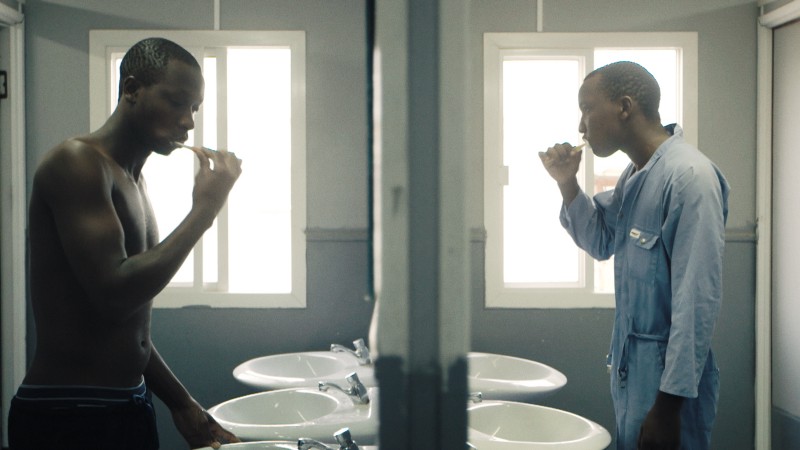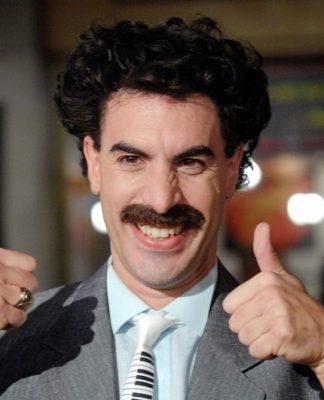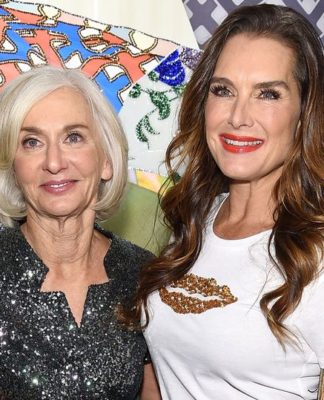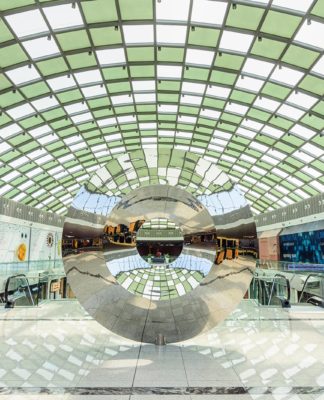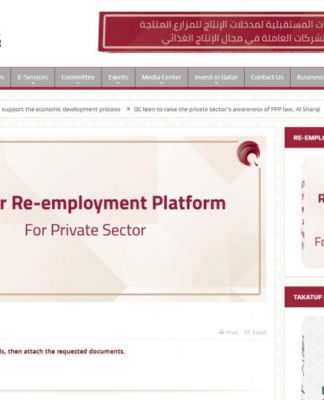A new poignant documentary about blue collar workers in Qatar has been making waves at the Sundance Film Festival in the US this week.
The 90-minute film, called The Workers Cup, was produced by three longtime Qatar residents who hope it will be screened in the country this year.
The film follows the lives of several office and construction employees who compete in a football tournament on behalf of their company.
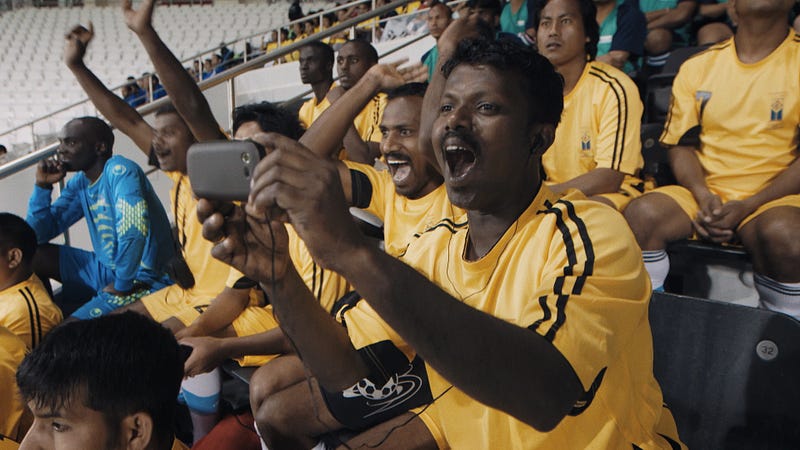
The annual cup was established to provide a recreational outlet for Qatar’s hundreds of thousands of blue-collar workers, most of whom live away from their families.
According to the film’s website, the men they profile “play heroes on the football pitch, but are the lowest members of society off of it.”
So far, The Workers Cup has been critically acclaimed by many publications, including Variety, which said:
“Indeed, The Workers Cup may resonate most strongly among the world’s soccer fans, especially those willing to take a look at the price these men pay to feed other people’s passions.
Without casting blame or stirring up resentments, (the director) simply gives the audience characters to connect with. What happens next is up to the viewer.”
Loneliness
For many workers, the tournament does indeed prove to be a welcome distraction.
But in between the matches and practices, the film also captures the loneliness, monotony and general dissatisfaction that many of the men feel while working in Qatar.
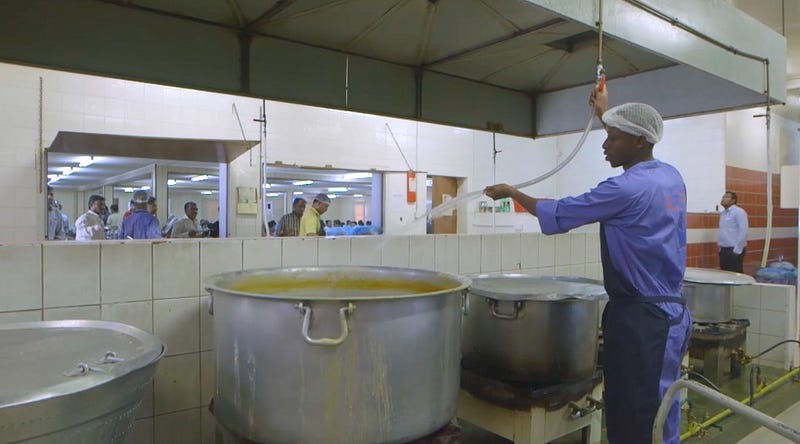
“This is no life, man,” said one expat from Kenya. “It’s like you are trapped or something because you don’t even get to enjoy the privileges of life.”
Speaking to Doha News, director Adam Sobel said the point of the film was to create empathy for a large segment of Qatar’s society.
Producer Ramzy Haddad added that the men were not victims, but “real individuals” who deserved to be honored for “their hopes and dreams and sacrifices they made for this country.”
Restricted movement
It is not always easy to interview expats who live in Qatar’s Industrial Area. Several foreign journalists have been arrested in recent years for trying to do so.
So it is notable that these filmmakers had permission to make the documentary, after being granted access to the workers by Gulf Contracting Co.
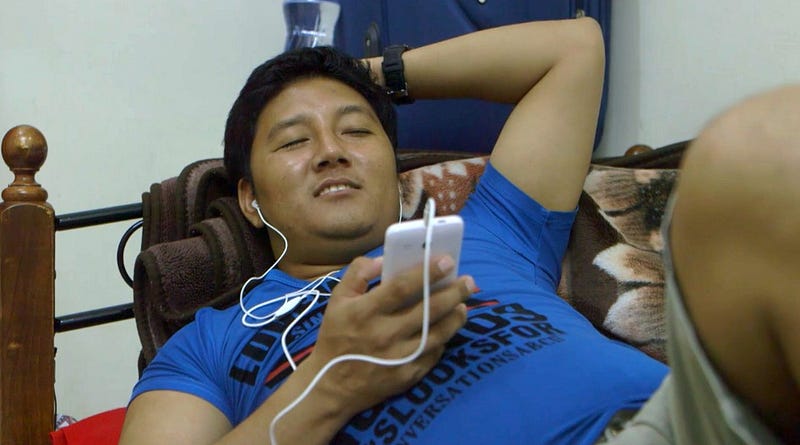
Speaking to Doha News, Sobel pointed out that GCC was not observed to be breaking any of Qatar’s laws.
The men in the film did not sleep in bunk beds, for example. They were served regular meals and paid on time.
But the hours they work are long, pay is low and access to the outside world is still restricted, causing one man to lament about how hard it’s been to go out on dates.
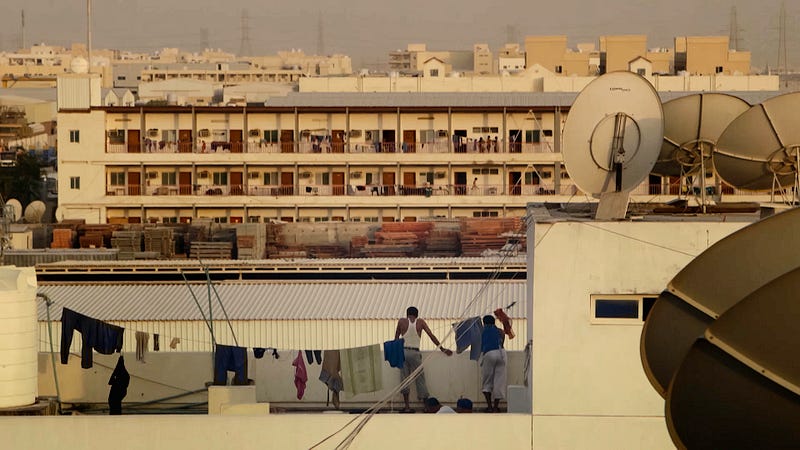
For many construction workers, coping of society’s disparaging impressions of laborers has especially been hard.
One GCC employee at a site near Lagoona Mall was told by his foreman not to enter the shopping center during regular hours. He mused that this could be so they don’t offend “rich people.”
“We could be wearing dirty clothes,” he said. “Maybe we’re dusty and smelly. And that’s bad, no? Like, for them to see the sweat and dirt? We don’t want to be a disturbance. Or to disgust them.”
Strong scenes
Many of the people interviewed in the documentary have since left Doha, but others have remained. And some have even returned to the country to work.
Before The Workers Cup was screened at Sundance, all of the subjects filmed got a chance to see it, as did members of Qatar’s World Cup organizing committee and some senior officials.
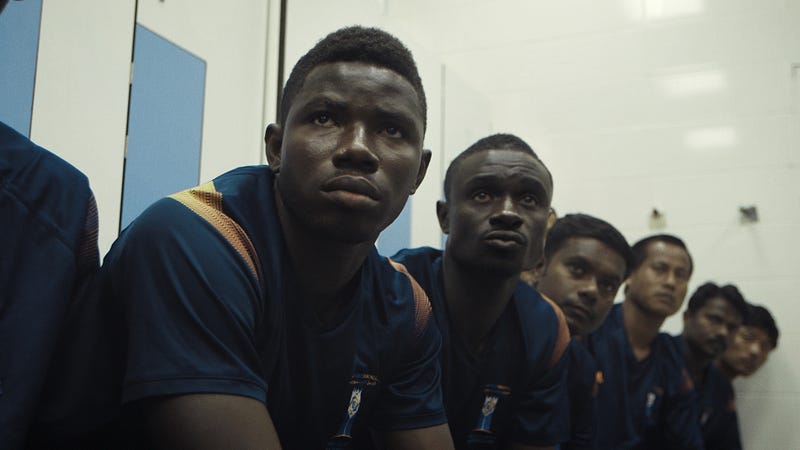
Producer Rosie Garthwaite said many “found it a bit difficult to watch, (but) they’ve all uniformly said they see the workers in a totally new way now that they’ve seen the film.”
One of many thought-provoking scenes in the film involved a few men sitting in GCC’s infirmary.
While there, one worker asks another about what happened to his leg. He explains that he woke up one night to find his roommate stabbing him with a knife.
“He was nice. He used to speak with me. The only problem is he wanted to go home,” the injured man explained.
Another man chimed in:
“The guy wasn’t mental. He just had a small problem. So he took a knife and cut. Then the camp boss took the guy and handed him over to the police. And the police figured the guy’s mental and sent him back to Bangladesh.”
The injured man added, “he told me, ‘I just want to go home to my mother.’”
Improvements made
The producers said some of the people who watched the film pointed out that Qatar has changed in the two years since the footage was shot.
For example, legislation has been passed to make it harder not to pay people on time.
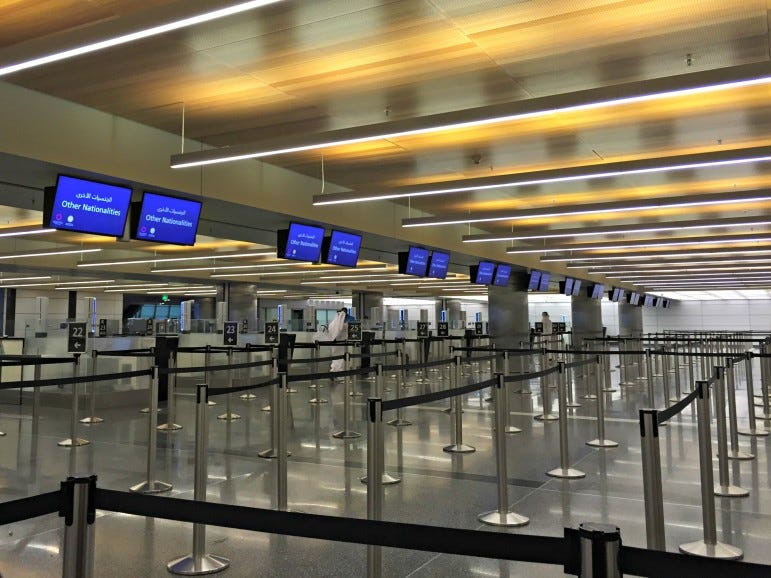
And new labor reforms were introduced last month so expats can change jobs and leave the country more easily.
But according to Garthwaite, “nothing actually changed” tangibly for the men interviewed.
She added:
“We hope that (the film) will be a catalyst for change. With five years until the World Cup — it’s now or never.”














